Rochester Pride meets moment in 2022: 'Our fight doesn't stop with LGBTQ specific rights'
ROCHESTER — As always, Saturday's annual Rochester Pride event was a joyous celebration of the right to be who you are, and yet there was an undercurrent of fear about the risk of losing those rights. There was also determination not to let that happen.
With the overturning of Roe v. Wade by the Supreme Court eliminating the constitutional right to an abortion earlier this year, the LGBTQ community has raised concerns the U.S. Supreme Court and state governments may eliminate same-sex marriage and other rights next.
Rochester resident Palana Hunt Hawkins, co-founder of 603 Equality, was the organizer of this year's Pride event, and spoke about the current threat.
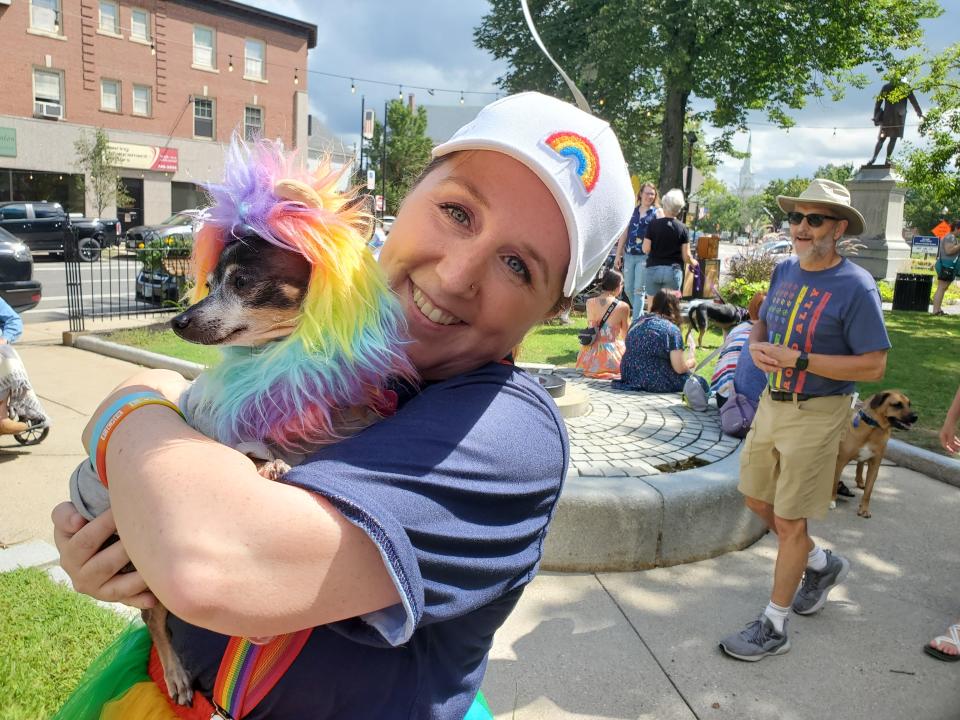
"The focus of our choices for the nonprofits represented here this year does look to trans health care," she said. "We are watching what other states are doing, and as they start peeling away the layers of body rights, we need to stay vigilant."
In wake of recent presidential races,: New Hampshire lawmakers battle over voting laws
City Mayor Paul Callaghan read a proclamation designating the month of August as Rochester Pride month.
"This is a great community event," Callaghan said. "I am glad to see it supported by Rochester Main Street. I don't see this as a political event, but as a way to welcome everyone here."
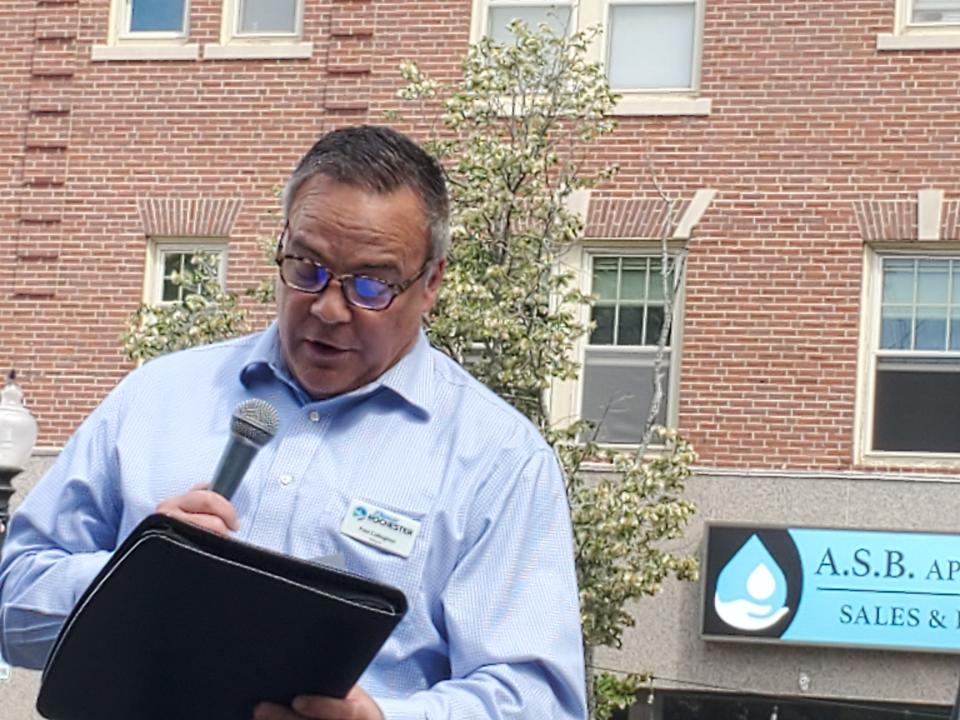
In his speech, Callaghan said all humans are born equal. He said the city is committed to ensuring every individual has dignity and worth.
Most of the speakers at the Pride event referenced the current political climate.
"I struggled with what to say today," said pastor Eliza Tweedy of First Church Congregational. "We all feel a bit like we have gone back in time. We feel this is not just a celebration, but an act of protest. We're here, we're queer and we are not going away for anyone."
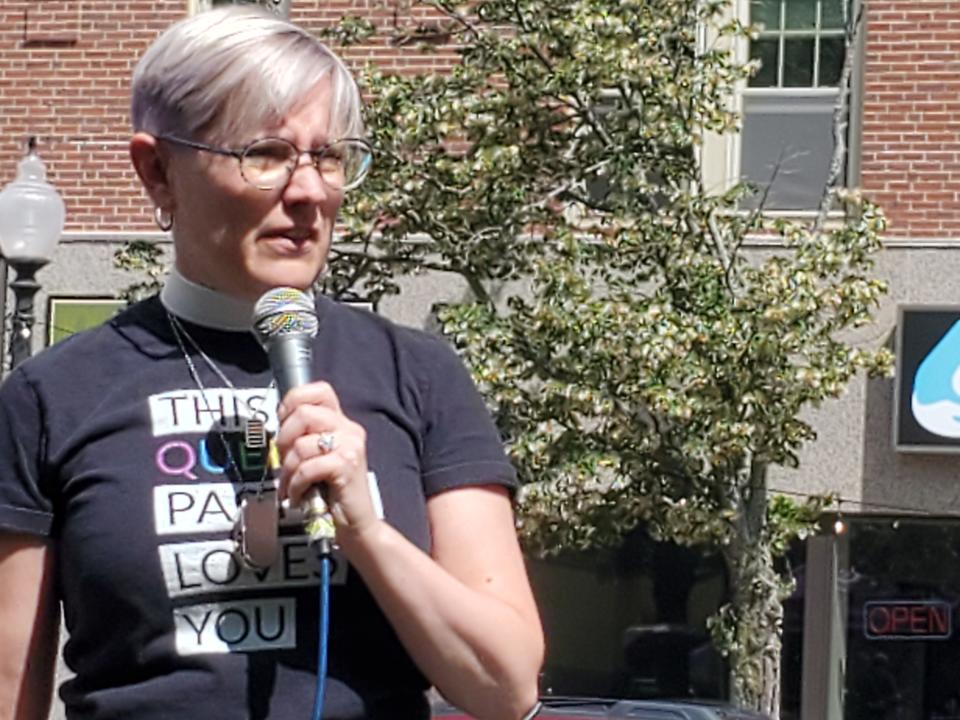
Tweedy said it is important to realize how far the movement has come already.
"We know we are stronger, more resilient and that we will fight for each other," Tweedy said. "We will equip those who come after us. It seems scary but we stand on the shoulders of giants. We stand here in pride, in defiance."
Dover councilor's forward-looking history lession of LGBTQ+ rights
Dover City Councilor Robbie Hinkel gave a speech that put the 2022 Roe v. Wade decision in context with major moments dating back to the 1960s, but mostly focused on the last two decades.
"I’m here to talk to you today a little about the history of the LGBTQ+ movement, how intersectionality is critical to our fight for collective liberation, and about the importance of getting involved," Hinkel said. "The fight for queer liberation really kicked off in 1969 with the Stonewall riots in New York City. Queer people were fed up with being persecuted, and decided to fight back. But the battle has been long and hard."
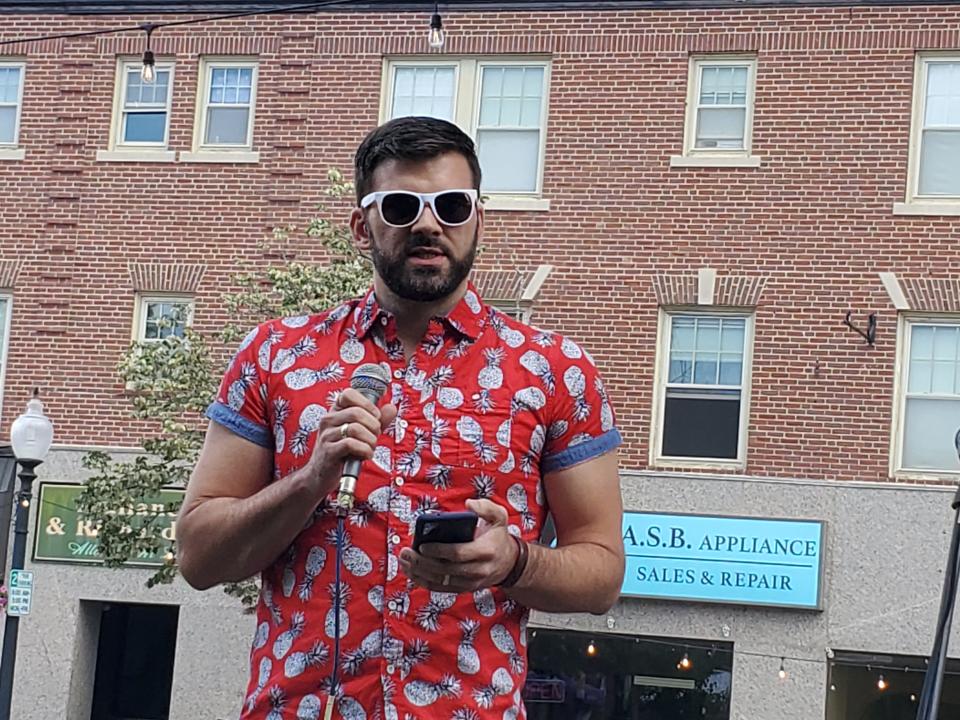
Hinkel spoke of the efforts to gain the rights of today, beginning with June 2003 in Lawrence v. Texas, when the Supreme Court decriminalized consensual same-sex physical relationships between adults.
"Just 19 years ago," Hinkel said.
His speech referenced multiple major decisions in the past 13 years, too:
2 zoning changes could change Rochester's future: Which one failed, and which moved ahead
● October 2009, under the Matthew Shepard Act, sexual orientation, gender, gender identity and disability were added as protected classes under federal hate crimes laws. ]
● December 2010, Congress passed the Don’t Ask, Don’t Tell Repeal Act, allowing gays and lesbians to serve openly in the military. He noted that today the trans community’s standing in the military is only as strong as a presidential executive order and it was rescinded when Donald Trump was in office.
● June 2013, in United States v. Windsor, the Supreme Court struck down section 3 of the Defense of Marriage Act (DOMA), forcing the federal government to recognize lawful same-sex marriages performed by states where marriage equality was legal. The decision set off a raft of state laws and state constitutional amendments banning same-sex marriage.
● June 2015, in Obergefell v. Hodges, the Supreme Court made marriage equality the law of the land. An added bonus of the Obergefell decision was that same-sex couples could finally adopt children nationwide. (Hinkel noted after Roe v. Wade was overturned this year some U.S. Supreme Court justices have explicitly stated it's time to overturn marriage equality.)
● June 2020, the U.S. Supreme Court ruled that sexual orientation and gender identity are covered under “sex” as protected classes from employment discrimination under Title VII of the Civil Rights Act of 1964.
Strafford County's $170M plan for nursing home decision is only part of vision for future
"Just two years ago it was still legal to fire or withhold a job from someone because of their sexual identity or gender expression. And today, we still don’t have protections in statute to protect us in health care, education, housing or financial credit at the federal level, leaving it to the states to have a hodgepodge of protections in place depending where you live," Hinkel said.
"We’ve made incredible progress over the past 20 years or so, and not only in changing the laws, but in changing peoples’ hearts and minds," said Hinkel. "We’re their friends, siblings, neighbors, aunts, uncles, parents, grandparents and everything in between.
"But, anyone who is paying attention knows that we still have a lot to achieve to be truly equal under the law. And to make matters worse, some of the protections we’ve fought so hard for are already starting to backslide, and the most vulnerable members of our community are the most at risk of being further marginalized and losing their rights, freedoms, and even their lives."
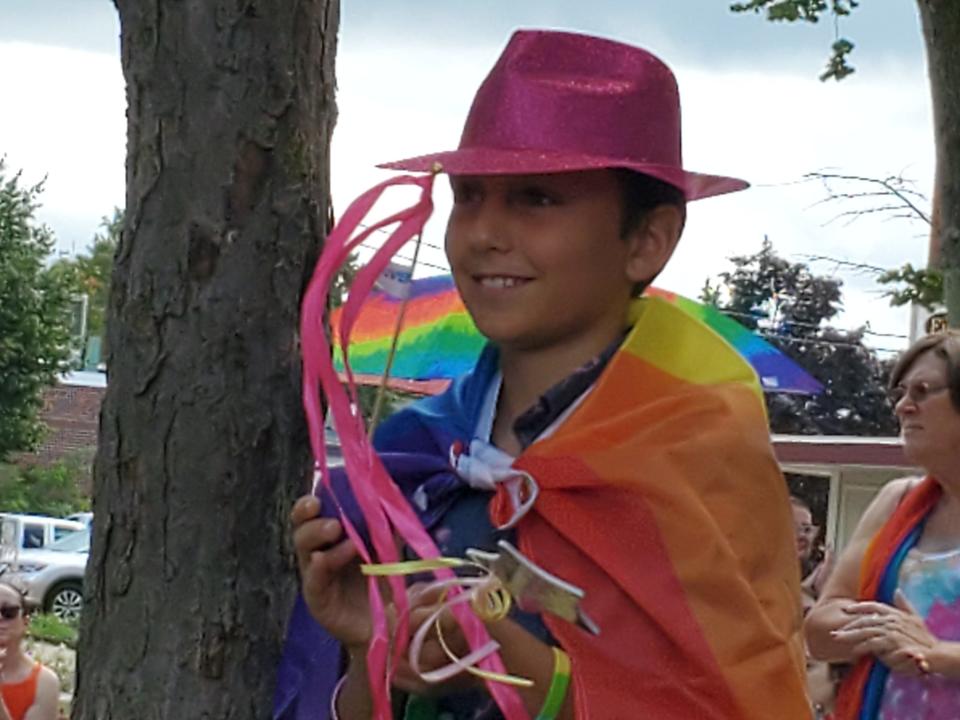
Hinkel urged everyone to vote, saying it is more important than ever as the danger of rights being taken away is real.
"My point here is that our fight doesn’t stop with LGBTQ specific rights," he said. "The fights against poverty, housing insecurity, domestic violence, substance use disorder, ageism, racism, anti-Semitism, Islamophobia, xenophobia, reproductive justice, easy and fair access to healthcare and treatment, and every other plight you can think of facing this country. These are very much our fights, too."
This article originally appeared on Fosters Daily Democrat: Rochester Pride 2022 puts LGBTQ rights fight in focus

